Participation in the Erasmus+ International Summer School «Sustainable Animal Husbandry and Animal Welfare»
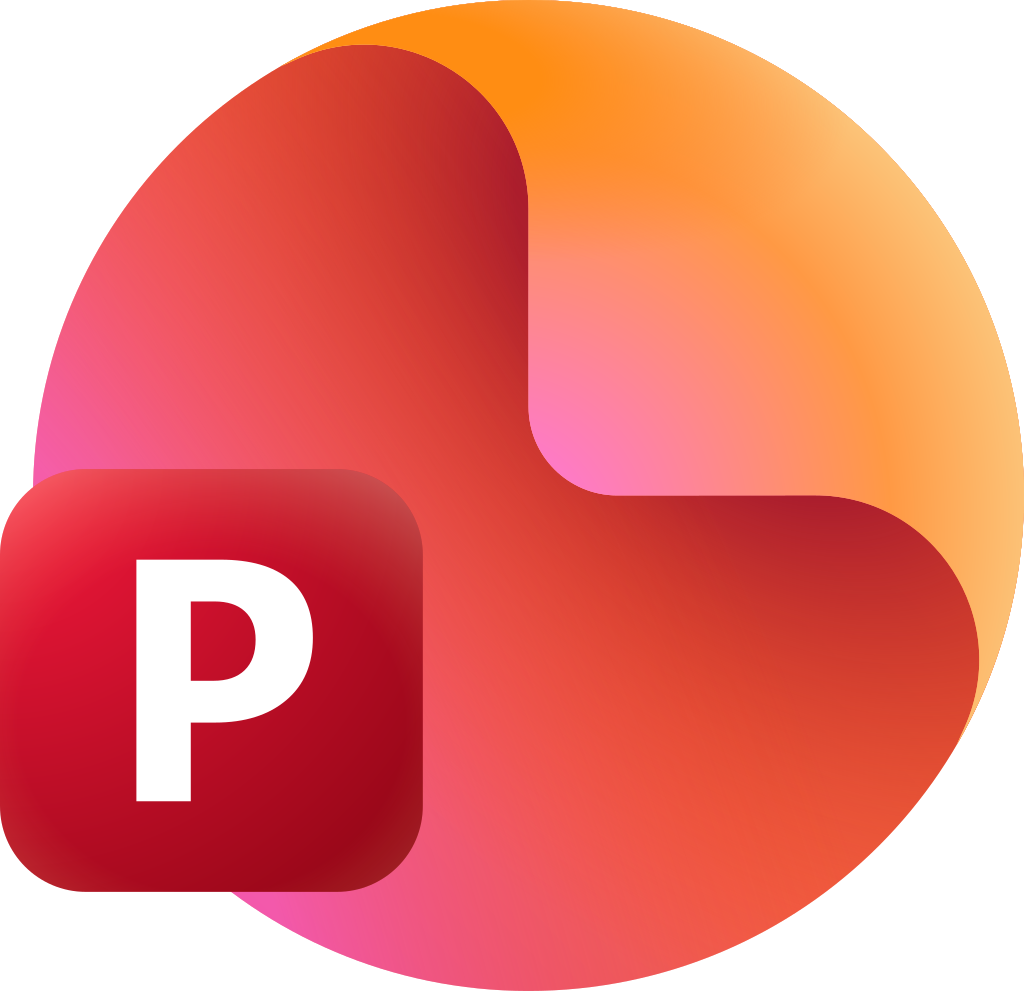 Milana Karasyk. Feedback about Summer School
Milana Karasyk. Feedback about Summer School
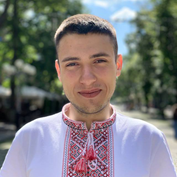 |
Mykita Omelchenko, student at the Faculty of Animal Husbandry and Food Technology, Poltava State Agrarian University
Participation in the Erasmus+ International Summer School, ‘Sustainable Animal Husbandry and Animal Welfare’, significantly deepened my knowledge of modern animal husbandry approaches that take animal welfare into account, as well as the integration of sustainable development principles into agricultural production practices. I particularly enjoyed the lectures on digital technologies in animal husbandry and their application in dairy cattle and poultry farming. I also appreciated the cooperative atmosphere, the lecturers’ openness, and the friendly interaction between participants from different universities. |
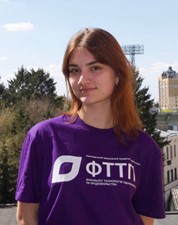 |
Anna Lykholat, student at the Faculty of Animal Husbandry and Food Technology, Poltava State Agrarian University
Taking part in the Erasmus+ International Summer School, ‘Sustainable Animal Husbandry and Animal Welfare’, gave me the chance to expand my knowledge of modern animal husbandry and gain valuable international experience. Those two weeks changed my view of modern animal husbandry! We attended lectures and discussed innovative approaches to animal husbandry, digital technologies, environmental responsibility, and animal welfare. The most memorable part were the workshops, which involved teamwork, creativity, lively discussions and inspiration to change the agricultural sector for the better. Many thanks to the organisers and all the lecturers for giving me the chance to take part in this international project! |
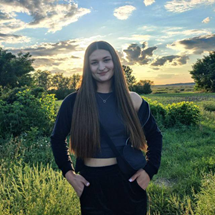 |
Olga Chyzmar, student at the Faculty of Animal Husbandry and Food Technology, Poltava State Agrarian University
We immersed ourselves in the world of modern animal husbandry for two weeks, learning about new approaches to sustainable development, animal welfare, and the digitalisation of agricultural production. The ‘Sustainable Animal Husbandry and Animal Welfare’ Erasmus+ International Summer School programme was extremely intense, lively and inspiring. It was fascinating to discover how the latest technologies can increase production efficiency and improve animal welfare. For me, participating in the programme was a catalyst for further professional development. I realised that sustainable animal husbandry is not just about technology or economics; it’s also about taking responsibility for nature, society, and future generations. |
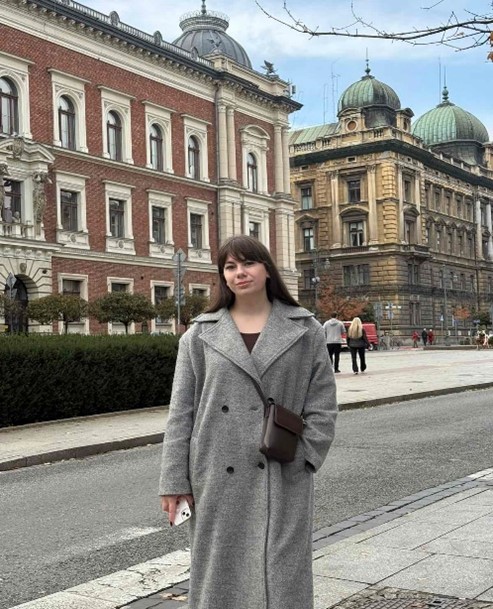 |
Sofia Demchyshyn – 4th year student of the educational programme ‘Technology of Production and Processing of Livestock Products’, Lviv National University of Veterinary Medicine and Biotechnologies named after S.Z. Gzhytskyi
Taking part in the Erasmus+ International Summer School, which focused on the important topic of sustainable animal husbandry and animal welfare, was an extremely valuable experience for me. I am very glad that the university organised this initiative, which gave me the opportunity to hear from leading experts from Ukraine, Germany, and Sweden. During the classes, I learnt a great deal about animal welfare and how to ensure the sustainable development of animal husbandry in the context of national security. I found it particularly interesting to hear how digital technologies are being implemented in practice. For instance, I learnt about their practical application in dairy farming and the use of automated information systems for dairy herd management. I was impressed by the lecture on hippotherapy as part of sustainable livestock development — an important but unconventional area. It was also informative to learn about veterinary telemedicine as part of animal welfare, as well as the requirements for small animal welfare in clinics. We discussed the impact of livestock development on biodiversity, and how animal welfare forms the basis of organic production. The training concluded with a discussion of the preservation of the gene pool of the Hutsul horse breed.I particularly enjoyed the workshop for students, where we worked on developing and presenting business ideas for sustainable livestock farming. This school gave me a broad understanding of how to combine science, welfare, digitalisation and ethical aspects in modern livestock farming. |
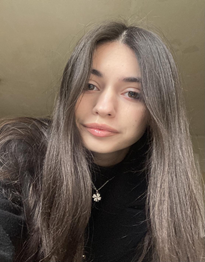 |
Antonina Tymchyshak – 3rd year student of the educational programme ‘Technology of Production and Processing of Livestock Products’, Lviv National University of Veterinary Medicine and Biotechnologies named after S.Z. Gzhytskyi
I participated in the Erasmus+ International Summer School, which comprised lectures, training sessions, classes and workshops. I am extremely happy to have had the opportunity to hear from qualified experts from Ukraine and other countries, such as Sweden and Germany. During the online lectures, I learned a great deal of interesting information about animal husbandry, including welfare, modern technologies and innovations. I especially enjoyed learning about ‘Future Meats’, also known as cultured meat, which is grown from animal cells in a laboratory. This meat represents the future of animal husbandry. Other interesting topics included hippotherapy, the modern requirements for milk quality, automated information systems for dairy herd management and modern animal welfare technologies. All of the classes were useful, informative and exciting. Thank you to the organisers, speakers and teachers for providing a valuable experience and the opportunity to develop professional skills and teamwork in a wonderful, friendly atmosphere. |
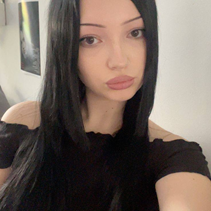 |
Diana Gracheva – 4th year student of the educational programme ‘Technology of Production and Processing of Livestock Products’, Lviv National University of Veterinary Medicine and Biotechnologies named after S.Z. Gzhytsky.
Thanks to my university, I was able to participate in the International Summer School this year. The 10-day training course was conducted on Zoom, which was very convenient. It was a great opportunity to delve deeper into my area of expertise and expand my knowledge in its various subfields. I liked how well organised the school was, how many people were involved, and that the lectures were given by teachers from Ukraine and other countries. The most interesting lectures for me covered animal welfare, hippotherapy, the future of meat and innovative, sustainable technologies in animal husbandry. All of the lectures were informative and worthwhile. I also liked that, after the lectures, there was a survey where participants could share their impressions and be heard. I believe that more events like this should be held in future because they enrich our learning experience, enabling each participant to discover something new that may influence their choice of field and career development. I am therefore grateful for the opportunity to participate in this school, as it was a wonderful experience. |
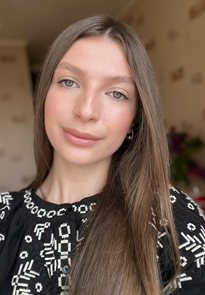 |
Natalia Tsap – third-year student of the educational programme ‘Technology of Production and Processing of Livestock Products’, Lviv National University of Veterinary Medicine and Biotechnologies named after S.Z. Gzhytsky.
Taking part in the International Summer School was an extremely exciting and informative experience. I am sincerely grateful to the university for giving me the opportunity to join this initiative, which not only provided me with new knowledge, but also gave me the chance to meet specialists and students from different countries, including Ukraine, Germany and Sweden. During the programme, I learnt about modern trends in sustainable animal husbandry, the latest farming technologies, and innovative approaches to animal welfare. I was particularly impressed by the workshop, in which we worked in teams to develop our own business ideas. This was not only exciting, but also very useful — I gained an understanding of how scientific knowledge can be combined with practical approaches to implement innovations in agriculture. Learning about hippotherapy and animal welfare as the basis of organic production, as well as innovative and sustainable technologies in livestock production, was equally interesting. The lectures were all well-structured and filled with real-life examples and useful advice, making the training as clear and engaging as possible. It would be great if future programmes combined theory and practice even more through joint projects, creative tasks and interactive discussions that stimulate professional and personal development. I would like to express my sincere gratitude to the organisers, lecturers, and all participants for providing such high-quality training in a professional yet friendly atmosphere. Such educational initiatives inspire us to develop our skills, feel part of the European scientific community and move forward. In this community, cooperation, innovation and a love for one’s work are valued |
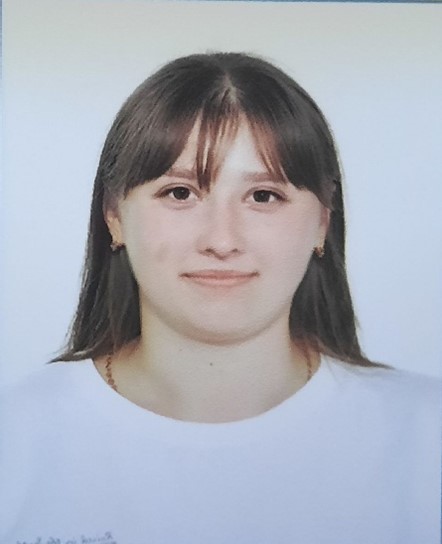 |
Anastasia Tsybulska, student at the Faculty of Animal Husbandry and Aquatic Bioresources, National University of Life and Environmental Sciences of Ukraine
Taking part in the Erasmus+ International Summer School, ‘Sustainable Animal Husbandry and Animal Welfare’, was a valuable experience which greatly enhanced my understanding of sustainable development. My master’s thesis is on the topic of: ‘Assessment of animal welfare on an industrial farm’. The information I gained from the summer school is informing my literature review and forming the basis of my research. In particular, I found the reports by the milk and pig farming associations valuable, as they provided insight into the concept of ‘welfare’ on industrial farms. I would also like to highlight the friendly atmosphere during the training and the lecturers’ high level of professionalism. |
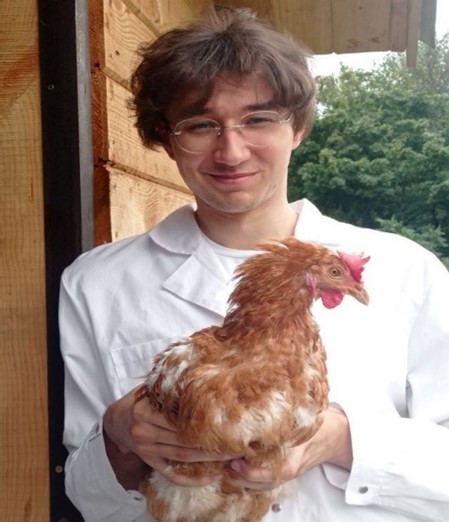 |
Danilo Dyomin, student at the Faculty of Animal Husbandry and Aquatic Bioresources, National University of Life and Environmental Sciences of Ukraine
Taking part in the Erasmus+ International Summer School, ‘Sustainable Animal Husbandry and Animal Welfare’, was an added bonus to my summer internship in 2025! I combine my studies with a job at the Central Kyiv Zoo, and I found it particularly valuable to understand animal welfare principles and how to ensure the emotional comfort of animals. While studying, I met students from other universities, which greatly expanded my social circle. I will graduate from university very soon and will work in animal husbandry. The knowledge I have gained has helped me understand how to manage the industry while preserving biodiversity! I am sincerely grateful to the training organisers for their motivation and creativity in teaching methods. I believe in my abilities and trust that everything will work out for the best in the future! |
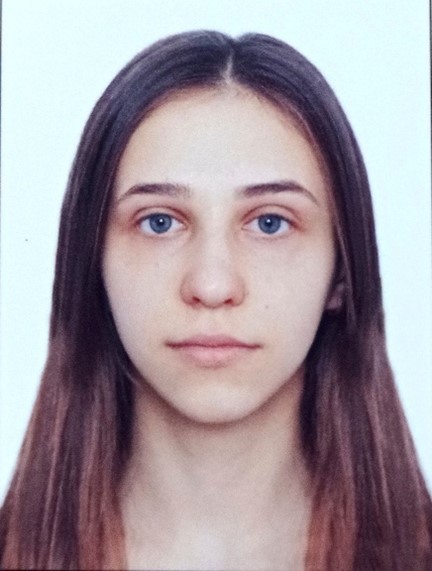 |
Lyubov Rudenko, student at the Faculty of Animal Husbandry and Aquatic Bioresources, National University of Life and Environmental Sciences of Ukraine
I thought the Erasmus+ International Summer School programme, ‘Sustainable Animal Husbandry and Animal Welfare’, was extremely interesting. What was supposed to be a regular summer internship turned into an opportunity to reconsider animal husbandry conditions, with the aim of ensuring comfort and freedom of natural behaviour. I intend to pursue a career in animal husbandry and I am delighted that I took the ‘Animal Welfare’ course, as this qualifies me to work with animals without requiring any further training. The knowledge I gained at the summer school is extremely useful and has broadened my horizons. I realised that the decisions we make in animal husbandry today will determine the quality of life for future generations — that is a great responsibility! |
